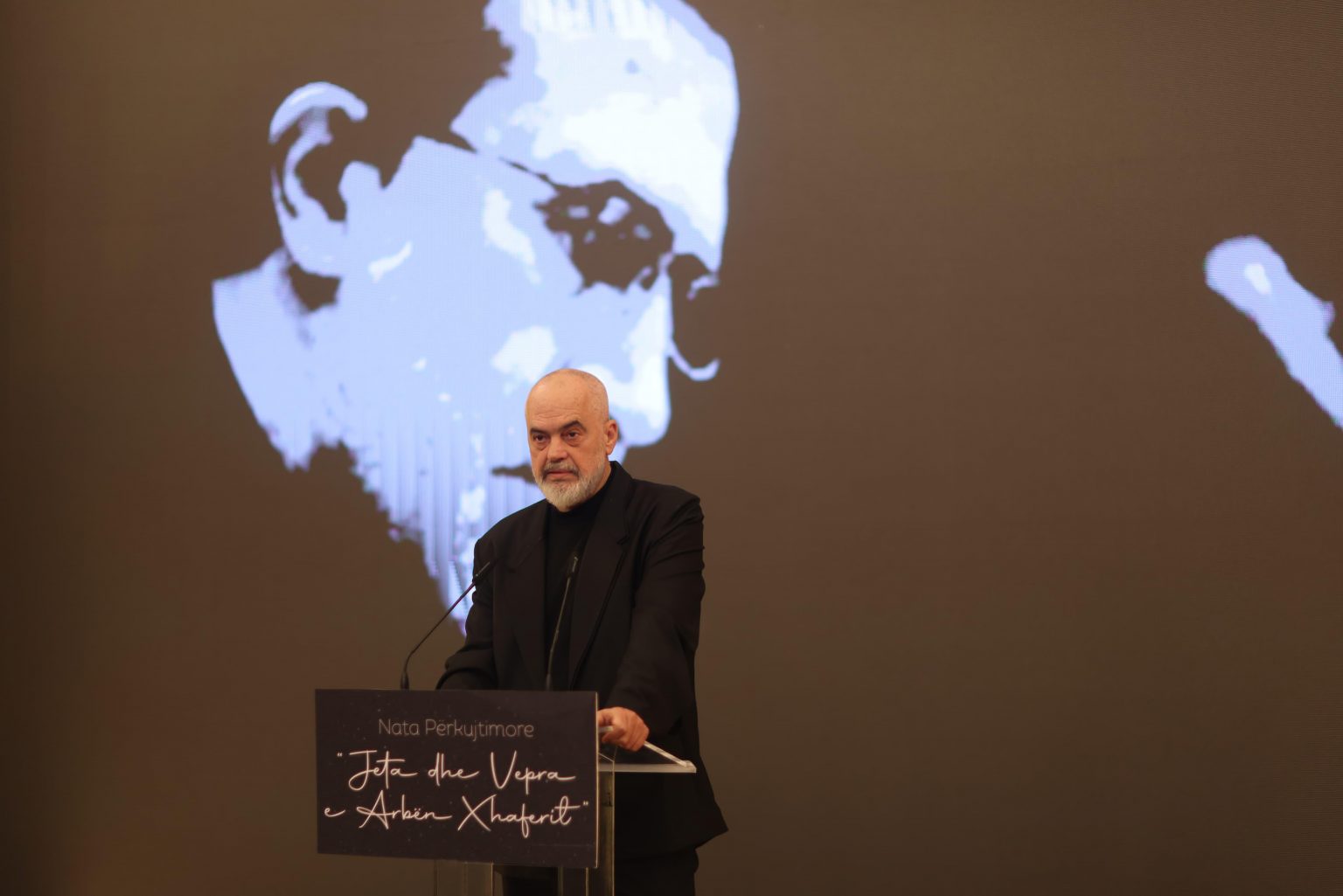Albanian PM addresses Albanian language debate in North Macedonia

Prime Minister Edi Rama addressed the ongoing debate about the status of the Albanian language in North Macedonia, following concerns raised by Democratic Union for Integration (BDI) leader Ali Ahmeti over potential challenges to the language law in the country’s Constitutional Court. The law safeguards the status of the Albanian language in North Macedonia. During his remarks, Rama appeared to indirectly criticize Kosovo’s Prime Minister Albin Kurti for recent comments in Skopje that downplayed the importance of protecting Albanian language rights, sparking backlash from Albanian leaders.
Why is this important: The Constitutional Court of North Macedonia is reviewing key provisions of the Law on the Use of Languages, which guarantees the use of Albanian as an official language alongside Macedonian. Albanians make up around 30% of the population, and the language law is a cornerstone of the Ohrid Framework Agreement that ended the 2001 armed conflict. Any changes risk rolling back hard-won gains and destabilizing the region.
Rama’s remarks: Speaking at an event hosted by the “Arbën Xhaferi” Foundation, Rama emphasized the importance of protecting the Albanian language as a permanent civic right in North Macedonia, not as a temporary matter dictated by political changes or court rulings. He said: “I am not saying that those who trust the Constitutional Courts of other countries are wrong, but I believe that what the Albanian language has achieved as a civic right in North Macedonia is not a matter for the Constitutional Court. It is not about temporary political decisions, as political parties change every four years. The Albanian language is a cornerstone of coexistence and unity between the two state-forming peoples of North Macedonia, Albanians and Macedonians.”
Criticism of Kurti: Rama’s statement appeared to target Kosovo PM Albin Kurti, who recently minimized the exclusivity of Albanian language rights during a visit to Skopje, standing alongside Hristijan Mickoski of the nationalist VMRO-DPMNE party. Kurti’s comments supporting the Constitutional Court’s role in reviewing the language law drew criticism from Albanian leaders in both Kosovo and North Macedonia. BDI leaders and opposition figures accused Kurti of undermining the law and granting legitimacy to nationalist attempts to erode Albanian rights. The fact that Kurti expressed support for the North Macedonian ConstitutionaL Court while repeatedly doubting his own country’s Constitutional Court was also met with disdain.
Legacy of Arbën Xhaferi and Ali Ahmeti: Rama reflected on the contributions of Arbën Xhaferi and Ali Ahmeti in securing equality for Albanians in North Macedonia. He described them as the “two heads of the [Albanian] eagle,” key figures in the struggle for coexistence and the achievement of the Ohrid Agreement. Ahmeti, who led the 2001 rebellion, remains a central figure in advocating for Albanian rights, while Xhaferi, a prominent intellectual and politician, championed the integration of Albanians into North Macedonia’s political and cultural life.
Context: The Law on the Use of Languages, adopted in 2019, mandates the use of Albanian in state institutions where at least 20% of the population speaks it. While Albanian is the only language meeting this threshold, the law also provides protections for smaller linguistic communities. The Constitutional Court’s review has sparked fears of regression under the nationalist VMRO-DPMNE-led government.
Regional implications: Rama highlighted the importance of preserving the Albanian language as essential for North Macedonia’s stability and European integration goals. He cautioned against reopening resolved battles, emphasizing that language rights are vital to the country’s unity and shared future. “Returning to legal labyrinths undermines progress achieved through the extraordinary efforts of leaders like Arbën Xhaferi and Ali Ahmeti, who paved the way for coexistence and European aspirations,” Rama stated.
What’s next: The Constitutional Court is scheduled to deliberate on December 11, with significant fears that an adverse ruling could inflame ethnic and political tensions. Leaders like Ali Ahmeti have appealed to international allies to prevent destabilization and ensure that language rights remain protected.


